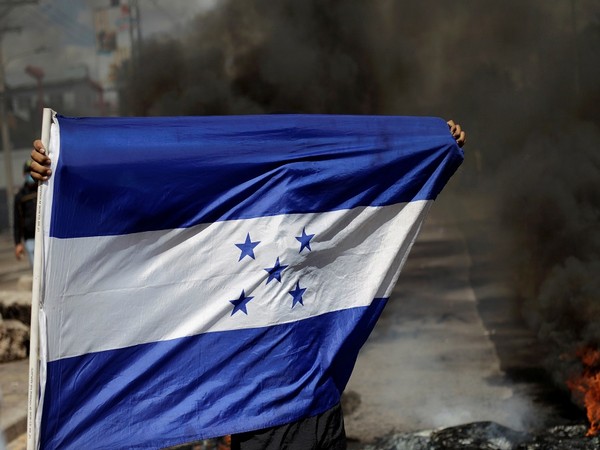UNHCR applauds Honduras's new legislation to address internal displacement
Over 247,000 Hondurans have been displaced by violence, of which 55 per cent are women and 43 per cent are children and adolescents.

UNHCR, the UN Refugee Agency, applauds the adoption by the National Congress in Honduras of landmark legislation that establishes an essential legal framework to respond to the complex situation of thousands of forcibly displaced people within the Central American country.
Over 247,000 Hondurans have been displaced by violence, of which 55 per cent are women and 43 per cent are children and adolescents.
Honduras’ new law, in addition to creating an institutional framework through the National Response System to Forced Displacement, establishes prevention mechanisms to address challenges such as the forced recruitment and exploitation of children and young people by criminal organizations.
The act also envisages the creation of educational reintegration protocols, as 46 per cent of displaced students had to temporarily suspend their education or were unable to return to school as a result of the country’s gang violence. Humanitarian assistance is another pillar of the legislation, with three quarters of the displaced population in need of material support.
Reports show that 85 per cent of those displaced who report impacts on their health expressed the need for access to mental health services. As such, the new legislation strengthens inclusion in mental health programmes.
“On my recent trip to Honduras, I heard devastating testimonies of people whose lives have been torn apart by violence and criminality,” said UN High Commissioner for Refugees Filippo Grandi. “This law on internal displacement is a much-needed step towards restoring their dignity, hope and rights. Now that it has been adopted, I encourage the authorities to expedite its implementation.”
According to the Inter-institutional Commission for the Protection of Persons Internally Displaced by Violence (CIPPDV), 68 per cent of displaced homeowners had their properties appropriated, destroyed, or were forced to abandon or sell them, and only 32 per cent managed to keep their properties after displacement. This legislation establishes a protection mechanism for abandoned housing, land and property, being the first legal tool in the country of this nature.
Although the Law has yet to be sanctioned by the President, this legislation stands as an example of the progress made in Central America and Mexico to protect and provide solutions for those forcibly displaced, within the Comprehensive Regional Protection and Solutions Framework (MIRPS), whose member states gathered in Tegucigalpa last week.
UNHCR together with partner agencies will continue to support the Government of Honduras in responding to and preventing forced displacement.
- READ MORE ON:
- UNHCR
- Honduras
- children
- National Response System
ALSO READ
UNHCR Report Warns of Rising Threats as Climate Crisis and Conflict Converge for Displaced People
UNHCR and IELTS Partner to Offer Free English Language Testing for Refugees
UNHCR and LIST Launch AI-Powered Global Early Warning System to Enhance Humanitarian Preparedness for Crises
UNHCR Launches 'Refugees for Climate Action' Network at COP29 to Bring Voices of Displaced Communities in Climate Debate
UNHCR launches $10 billion appeal to address global refugee crisis in 2025










